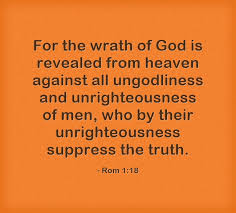God created the world mainly by the Word of His mouth, saying, “Let there be.” He has since then done numerous other things in different ways with the same results. Below are a few of those times:
●
In
Egypt, He turned water into blood, but in Cana, He turned water into wine
(Exodus 7:20; John 6:6-10).
●
Once,
Jesus healed two blind men by touching their eyes because they confessed that
they believed He could heal them. He also told them it would happen because of their
faith. But on another occasion, Jesus spat on the ground, moistened the dirt with the
saliva, spread the mud on a blind man’s eyes, and instructed him to go and
wash in the pool of Siloam (see Matthew 9:28-29; John 9:6). Although methods were
different, the result was the same: sight was restored.
●
The
city of Jericho was conquered without weapons: the Israelites marched quietly
(except for the priests blowing their horns) around the city once a day for six
days and seven times on the seventh day. On the last round, they shouted, and
the walls collapsed. But when it came to Ai, the Israelites were instructed
to lay an ambush behind the city and then attack from the front, and when the Ai
troops engaged them and chased them out of the city, those in ambush would
attack the city from the back and conquer it. In both cases, the Israelites
were victorious, but the strategies were different. (Joshua 6:1-20;
8:3-19).
When it comes to salvation, however, there are no alternate ways; there is only one way!
Salvation is the process by which sinners are brought into a personal relationship with God based on the fact that Jesus took mankind’s sin on Himself when He died on the cross and rose again on the third day. Salvation is called by other names, including being born again, becoming a child of God, and being adopted into God’s family.
You might be wondering, why do we need to be saved? Currently,
having inherited the sinful nature of our fore-parents, Adam and Eve, we are
alienated from God just like they were; the Bible says we are His enemies. For
the relationship to be restored, we need our sins forgiven. If we don’t get
forgiven before we depart this world, our destination after this life will be
hell; it will be too late to do differently.
So, how does this process
work? The Bible tells us: “This is how God loved the world {people}: he gave
his one and only Son {Jesus} so that everyone who believes in him will not
perish but have eternal life” (John 3:16). So, out of God’s love for mankind,
He had Jesus die in payment for man’s sins. And the only way this would apply
to anybody is for each person to individually pray to God, admitting that they
are a sinner, and accept Jesus’ sacrifice in their place. And Jesus Himself
said clearly to His disciples, “I am the way, the truth, and the life. No one
can come to the Father except through me”
(John 14:6).
God will answer this prayer by forgiving the individual and indwell him through the Holy Spirit. The indwelling of His Spirit testifies that
the individual who prayed has become a child of God; his sins are washed away,
never to be remembered: “He has removed our sins as far from us as the east is
from the west” (Psalm 103:12).
Individuals who think they
can get to heaven through any way other than Jesus are frighteningly mistaken.
God does not go back on His Word; it will always be as He says or not at all.
Dear reader, don’t count on your good deeds or some other religion; none of
those will save you. This is the time to decide to either be a child
of God or His enemy; God will honor your choice either way, and you have to
live with your choice forever, with no possibility to change your mind in
eternity. Please give this serious thought and choose wisely; time is
running out!




